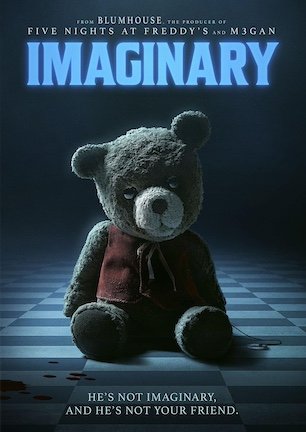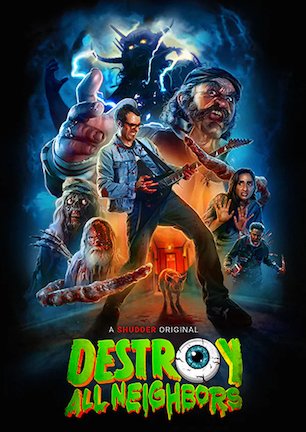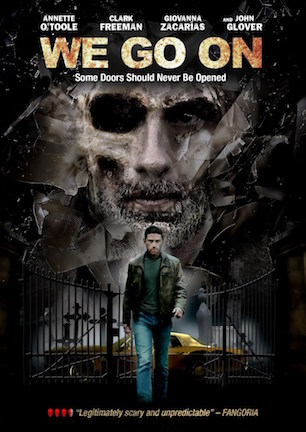Studio: Morgan Creek
Director: Clive Barker
Writer: Clive Barker
Producer: Gabriella Martinelli
Stars: Craig Sheffer, Anne Bobby, David Cronenberg, Charles Haid, Hugh Quarshie, Hugh Ross, Doug Bradley, Catherine Chevalier, Bob Sessions, Malcolm Smith
Review Score:
Summary:
Manipulated by a serial killer, a troubled man discovers a lair hidden beneath a cemetery that provides refuge for monsters.
Review:
Click here for the review of Nightbreed: The Cabal Cut.
In the years since the 1990 release of “Clive Barker’s Nightbreed,” much has been made in various horror-related circles about the film’s post-production woes and its studio-mandated editorial revisions. Artistic intent clashed with perceived marketing needs and the resulting compromise produced a film that no one was completely happy with. That includes the director and the studio, as well as the audience. Going into a contemporary viewing of the theatrical cut with this hindsight of how behind-the-scenes tumult morphed the end product does not justify the issues that “Nightbreed” has, but it does explain why the film suffers from an obvious identity crisis.
Boone is a leather jacket-clad bad boy who is head over heels in love with regular girl Lori. Theirs is the kind of lifestyle that subsists on their undying affection for one another. If only Boone could stop dreaming about murder, monsters, and the mysterious gates of a place called Midian, he might be able to devote himself fully to their relationship.
Treating the fractures in Boone’s psyche is Dr. Decker, a man who moonlights as a mass murderer in a dirty mask with button eyes and a zippered mouth. Decker successfully convinces Boone that he is actually the city’s most wanted serial killer and pins the crimes on his troubled patient. The resulting manhunt forces Boone into hiding below a cemetery, where he discovers a cadre of monsters, mutants, and misfits living in secret.
On capsule synopsis alone, “Nightbreed” baits a fantastic hook. Masked killers, numerous creatures, and a climactic firefight that would leave John Rambo’s jaw on the floor. What could go wrong? The answer is in the movie’s living proof that a jack-of-all-trades is usually a master of none.
Thematically, “Nightbreed” tries covering an astonishing amount of ground for what was originally the novella length story “Cabal.” “Nightbreed” weaves together threads that include intolerance, desire, transformation, and misguided morality around a romance, a serial killer police procedural, and an old-fashioned monster rally. So many elements combine for such a complex tale that “Nightbreed” is already in the hole by condensing everything into just over an hour and a half.
“Nightbreed” has too many ideas and too little time. The love story between Boone and Lori is crucial to what Barker wants to establish, but with only one brief scene together before Boone breaks for Midian, their star-crossed tale is flattened before having a chance to fully inflate. Lori suffers an extension of this fate by being forced to walk through the film with a glazed over expression of grief or disbelief. The audience is all but robbed completely of any opportunity to see her do something besides frown, keeping her personality as flat as the romance.
Character development is the first casualty of the theatrical cut. The portion of the screenplay that makes it onscreen overflows with roles whose purposes are perfunctory, if not entirely unnecessary. Ignorant of Barker’s original plans, the inclusion of two separate shady lawmen appears superfluous. Reverend Ashberry feels like an eleventh hour inclusion. And even without knowing that over an hour of footage was trimmed from the final version, it is plain to see that scissors went wild in the editing room and created Grand Canyon sized gaps in the storyline.
When Lori begins her search for Boone, she wins the sympathy of a barfly named Sheryl Ann after the other woman finds Lori sobbing in a bathroom. The two ladies bring new meaning to the phrase “fast friends” when their next scene together is in preparation for an extended road trip to find Midian. Although he had technically met a trio of Nightbreed previously, the first depiction of Boone in Midian’s underground is combined with his initiation into the Nightbreed. He appears to be meeting several of the creatures for the first time, yet he has also already received enough tutoring in their laws by his advocate that it is time for an official rite of passage. Such jumps do not necessarily make the narrative confusing, but they do make it a choppy ride.
With imbalanced plot points and disproportioned character arcs working against the film’s efforts to gel into a cohesive whole, it is a marvel that age has been somewhat kind to “Nightbreed.” That is because as flawed as it is, “Nightbreed” is not a completely lost cause.
Judged on design alone, the characters are a success. David Cronenberg’s Decker mask and gentleman’s attire is an effectively simple evocation of fear sure to turn heads if worn as a Halloween costume. The Nightbreed themselves are fantastic both in design and in execution. Strangely, that emphasis on their arresting visuals is what fuels the disappointment when most of the monsters are ultimately given little to do besides skulk in subterranean shadows.
Tim Burton fans can disagree, but Danny Elfman has never contributed a more fitting film score. The signature Elfman blend of darkness and fantasy by way of his distinctive horns and children’s choir la-la-la’s is perfectly synched to the atmosphere of Midian and the revelry of the Nightbreed.
As a feast of sights and sounds, “Nightbreed” is a sumptuous triumph. Unfortunately, the Frankensteined edit truncates the story at its knees and nearly everything else about the project causes it to fall face first in the dirt. Not without redeemable charms, “Nightbreed” is far too bloated by its own ambition to have ever had a chance of succeeding with compromised creativity or with an abbreviated runtime.
Review Score: 60







If you want to see impossible amounts of blood explode crimson colors like the world’s worst version of a gender reveal, well, “Abigail” at least has that.